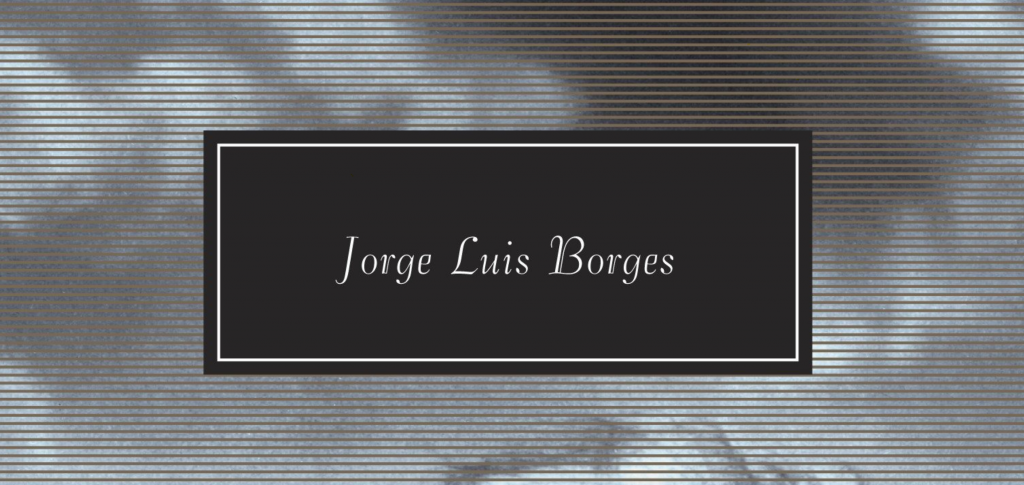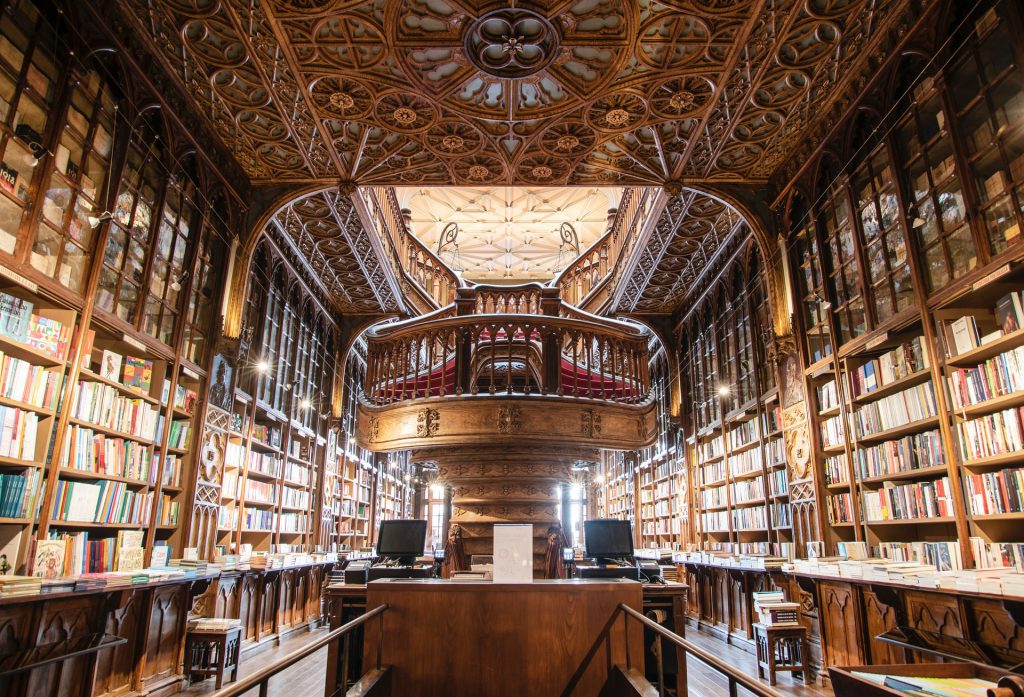Fantastical Libraries Inspired by Borges
Jorge Luis Borges has a literary career chock-full of wondrous ideas and conceits, but perhaps none of them are as compelling as his “Library of Babel,” a library the size of the universe, containing all possible 410-page books. Most of the books, naturally, are gibberish, but those inside the library believe that somehow, somewhere, there are books of coherence and meaning, if they could only find them. Unsurprisingly, book lovers and authors alike have fallen in love with an idea, and made it their own. Here are a few of our favorites.
No stranger to the metaphoric-made-flesh, Umberto Eco's The Name of the Rose has in its heart a labyrinthine library. Naturally, this library is presided over by a blind monk named Jorge of Burgos.
Each room in Borges’s Library is hexoganal; so too are the rooms in the Temple of a Thousand Doors from Michael Ende’s The Neverending Story. As its name suggests, the temple contains doors, not books, but since the temple’s doors, like a good book, can take you anywhere, the connection is not lost.
Terry Pratchett borrows from Borges the potential of the infinite library with his “L-space” theory in the Discworld books. Not only are all libraries and bookstores connected via L-space—“knowledge = power = energy = matter = mass,” the theory goes—but even books that haven’t been written yet can be divined from close study of books that have been. An orangutan librarian, however, is entirely Pratchett.
We don’t have to guess about whether the infinite library “Babel” in Greg Bear's City at the End of Time is inspired by Borges; Bear has repeatedly said that it’s the case. Borges also shows up in the novel and is described as the commissioner of an encyclopedia of impossible things, which is very Borges encyclopedia, indeed.
Fone, a short comic by Milo Manara, has a human astronaut and his alien partner stranded on a planet named Borges Prophet. As you might expect, Borges Prophet is covered in books, containing all the possible permutations of letters. Manara, ever the visual trickster, adds a wrinkle where reading the right passage aloud rewrites reality.
In a more interpretive vein, Jonathan Nolan's and Christopher Nolan's Interstellar, the protagonist ends up in a vast, infinite space, where he is literally moving books across time, to what he hope are decipherable ends. It’s not a bunch of hexagons, but it’ll do.
But the all time prize goes to Jonathan Basile, who digitally recreated the Library in Borges' story on this website. Basile’s algorithm creates a "book" using random permutation of 29 characters: the 26 English letters, space, comma, and period. Each book is marked by a coordinate, corresponding to its place on the hexagonal library (hexagon name, wall number, shelf number, and book name) so that every book can be found at the same place every time. Perfect for anyone who ever wanted to go slightly mad like Borges' character in the comfort of their own desktop.

Jadzia Axelrod
Jadzia Axelrod is an author, an illustrator, and a world changer. Throughout her eventful life she has also been a circus performer, a puppeteer, a graphic designer, a sculptor, a costume designer, a podcaster and quite a few other things that she’s lost track of but will no doubt remember when the situation calls for it.She is the writer and producer of “The Voice Of Free Planet X” podcast, were she interviews stranded time-travelers, low-rent superheroes, unrepentant monsters and other such creature of sci-fi and fantasy, as well as the podcasts “Aliens You Will Meet” and “Fables Of The Flying City.” The story started in “Fables Of The Flying City” is concluded in The Battle Of Blood & Ink, a graphic novel published by Tor.She is not domestic, she is a luxury, and in that sense, necessary.



